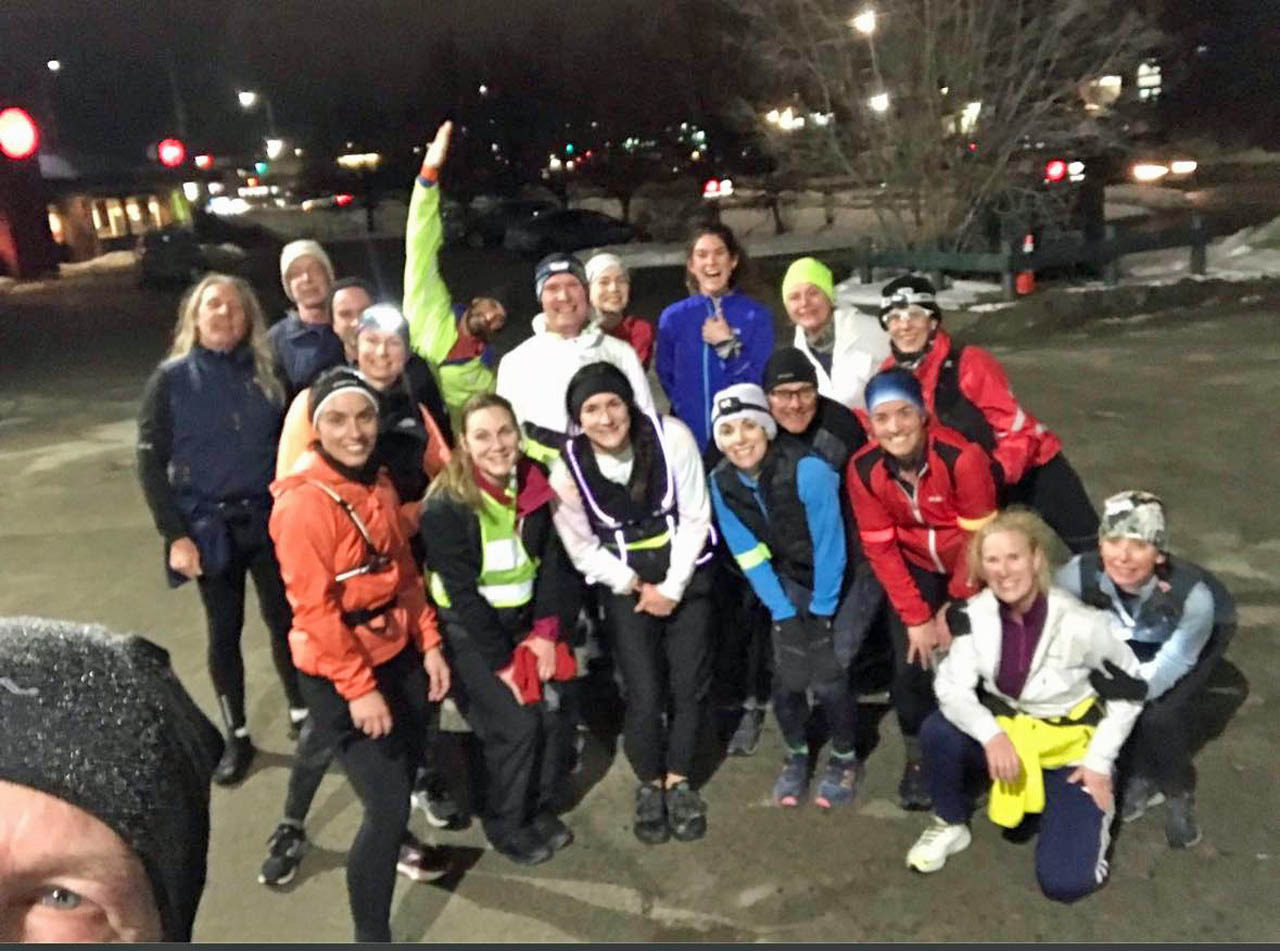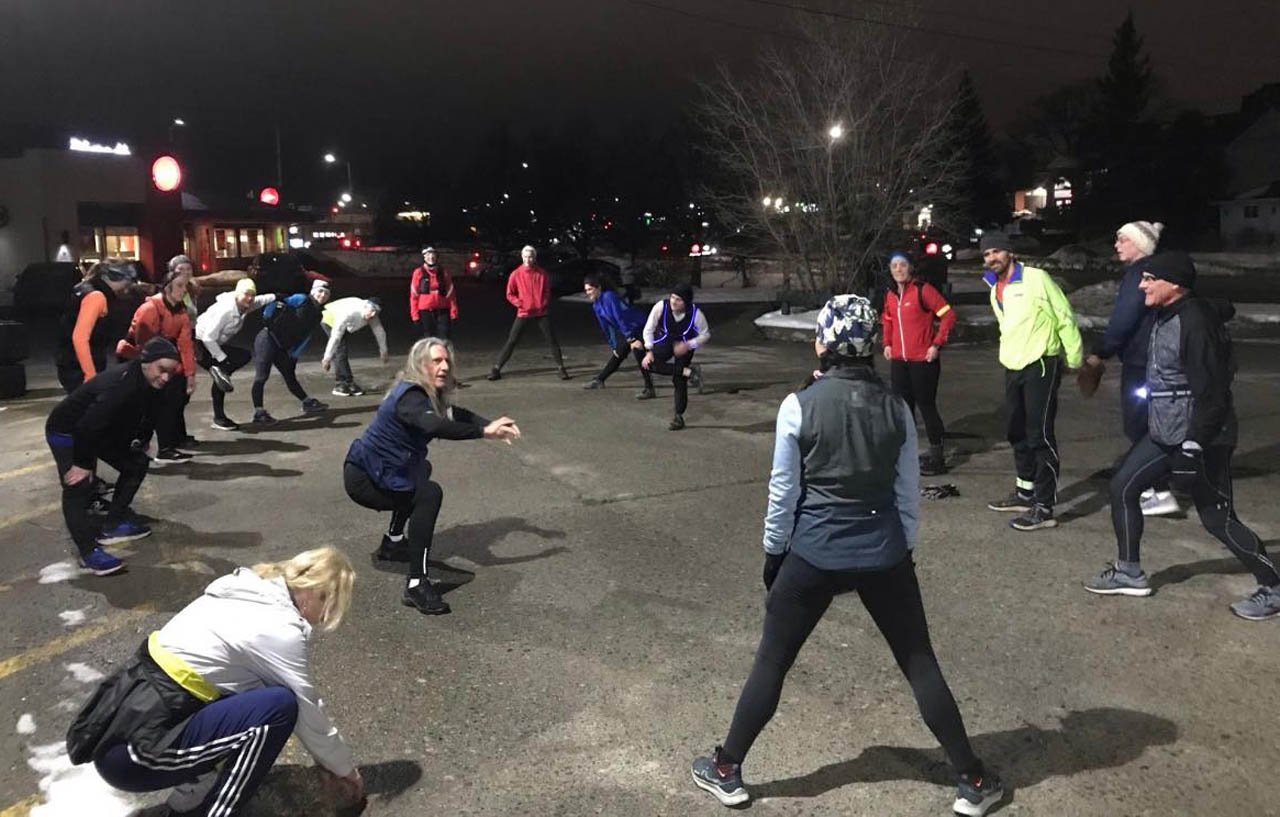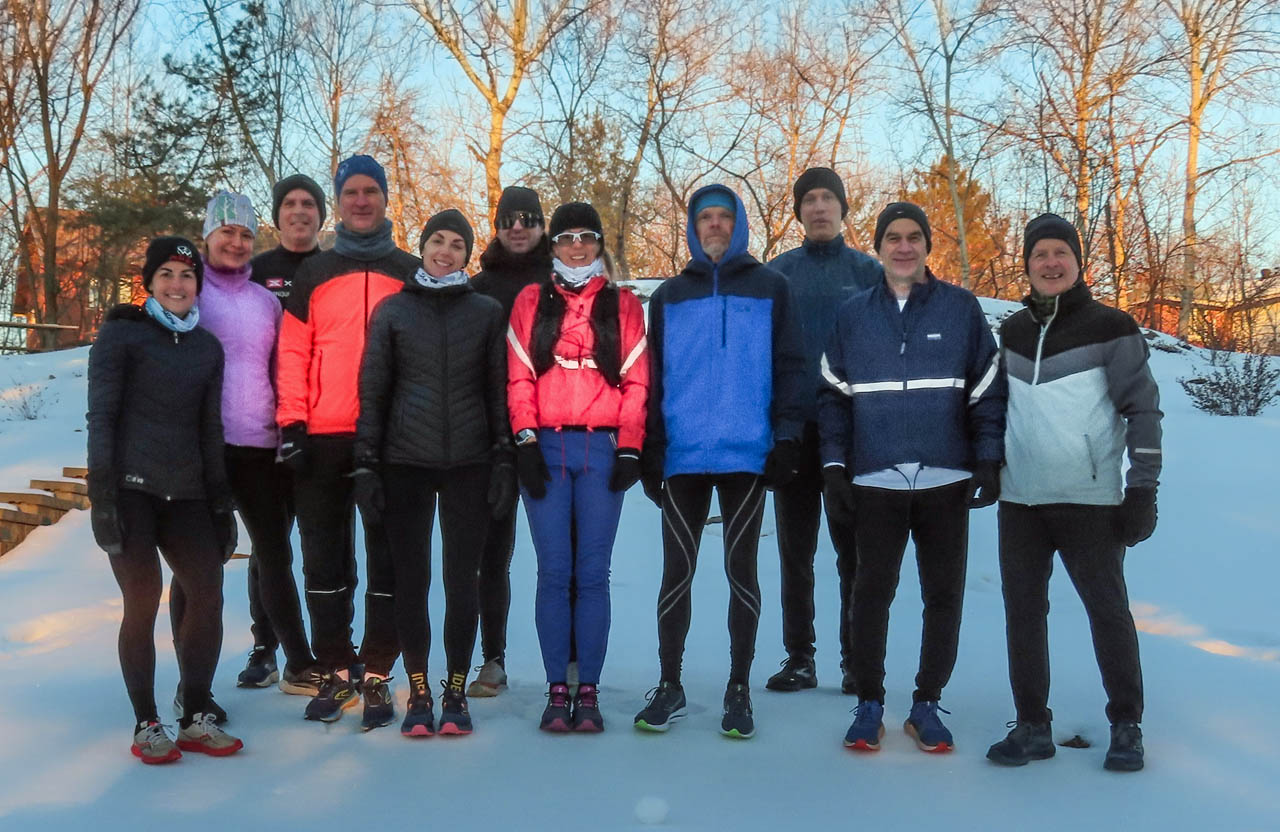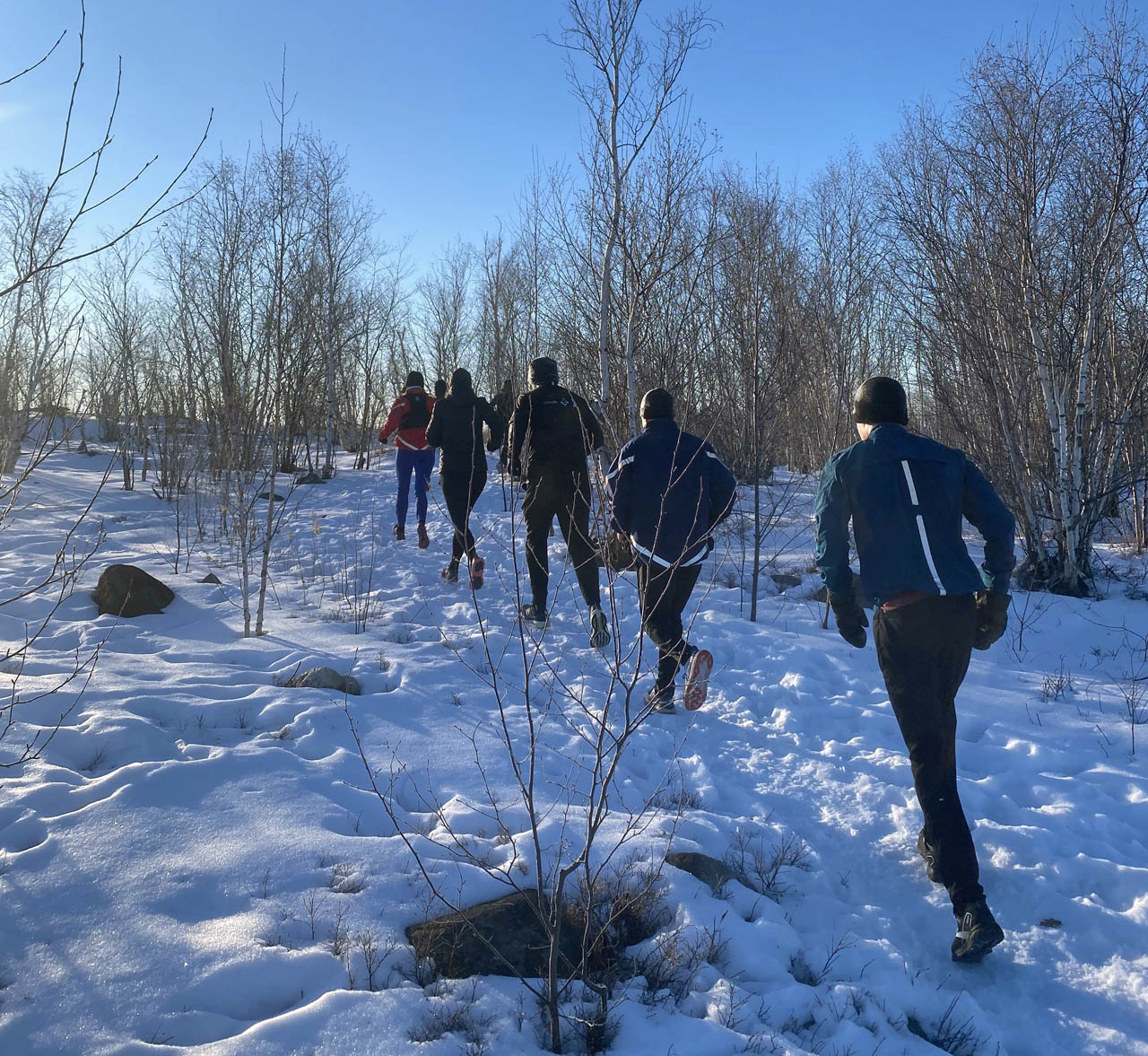| In
November, I ran the Manchester Road Race (in Connecticut)
for the 61st year in a row. That’s an unofficial
world record for consecutive-year race streaks. (There
are no official world records for this category.)
Most runners understand the benefits of lifetime fitness,
but that doesn’t make it easy to achieve. Here’s
how you can go the distance.
I’m prouder of this streak than
I am of the nine times I actually won Manchester or the
single time I won the Boston Marathon. That’s because
I believe the ultimate runner goal is lifetime running—and
not just one stellar race, or even several. I
want to keep moving, as long as I can. In my view, there’s
really no alternative. A body at rest will rot or rust—simple
physics. On the other hand, “motion
is lotion.” It keeps the body fit and functional.
Or as Dr. Ken Cooper, the father
of aerobics, put it: “We don’t stop exercising
because we grow old. We grow old because we stop exercising.”
Running the same annual race is a great
way to motivate lifetime fitness. The calendar is consistent
and dependable, and your yearly race represents a simple
checkmark event. You either did it, or you didn’t.
Here are six key strategies I’ve
used to keep myself running Manchester through six decades.
None make unrealistic demands. You
don’t need to run 50 miles a week, or spend 5 hours
each week at the gym. The below strategies are simple,
yet they are powerful. They have worked for me, and they
will work for you, too.
The Six Keys To
Lifetime Running
#1: You Must Have A Mantra
The effort required to maintain a race streak and establish
a lifetime running habit is 10 percent physical and 90
percent mental. You needn’t obsess about your BMI,
heart rate, stride frequency, VO2 max, or lactate-threshold
pace. Those are just numbers. What
you need is words that inspire—a mantra, or many
mantras.
Since I’m not particularly clever
or creative, I thought I’d find my mantra in one
of the great books. They’re full of fantastic quotes.
You know: the Bible, Shakespeare, Russian novels. We’ve
all heard some of the epic lines. In the Bible, you might
favor: “But those who hope in the Lord will renew
their strength. They will soar on wings like eagles; they
will run and not grow weary; they will walk and not faint.”
Or from Shakespeare: “Bid
me run, and I will strive with things impossible.”
These are lines to stir a runner’s soul.
Surprisingly, I discovered my mantra on
a relaxed trail run. The words just coalesced midway between
my ears: “Every run is a new adventure. And every
mile is a gift.” The expression
felt right, and it has stuck with me. I repeat the words
now during every mile of the Manchester Road Race and
the Boston Marathon. Especially that second sentence:
“Every mile is a gift.”
Choose your own special mantra, or mantras.
Borrow from the Classics—there’s no shame
in that. But be sure to find phrases that resonate deeply
for you. Your mantras will keep you going when the going
gets tough.
#2: Find A Training Partner, Then
Find More
John and I did our first run together on a disgusting,
hot summer day in 1965. The companionship turned a miserable
run into a delight. We have been
running together ever since. In fact, I could tell you
the dates of several races we’ve both entered in
the next six months. Our fitness friendship has been one
of the greatest rewards of my lifetime in running. It
has also been one of the biggest boosts to my running—year
after year, decade after decade.
Training partners understand you, whereas
others sometimes don’t. They share your passion.
They lighten the load. And, most important, they hold
you accountable. When your training
partner agrees to show up at the corner of Main Street
and Maple at 6 a.m., you know you’ll be there, too.
You don’t have to do every run with
a training partner. Our hectic, unpredictable lives make
that almost impossible. I probably do 80 percent of my
running alone these days. But the
other 20 percent are my best running days. I always look
forward to meeting up with John, Gail, Gary, Jim, Bill,
and a few others. As Bill Rodgers
has said, “A running partner is a gift for life.”
I couldn’t agree more. Each
running partner is also a gift to motivate your lifetime
running. See you soon, John.
#3: Cross-Training Is Not An Option:
It’s A Necessity
I used to run 13 times a week. On Monday through Saturday,
I’d hit the road in the early morning and again
in the late afternoon. Sunday was an easy day—just
one run, a 20-miler.
Now, I train almost as often as I did
then. Yes, I admit to being a bit of an exercise addict.
Can’t help it. The workouts make me feel so good.
But my current training program includes just three or
four runs a week, with a longest of maybe 10 miles. The
rest of the time, I’m mostly on an indoor recumbent
bicycle, pedaling at modest effort while reading newspapers,
magazines, books, and scientific papers. My body couldn’t
absorb more pounding. I also devote
20 minutes, twice a week, to strength training in my local
gym. I can’t say I enjoy this very much. But all
the health and fitness guidelines say we should do this,
and I don’t argue with the consensus advice of the
world’s leading exercise experts. Most
importantly, my routine is working. When I head out for
a typical run, I have no pain. None in the back, none
in the hips, knees, ankles, or feet. That’s such
a blessing. I want to continue this way for as long as
I can. So I’m not going to
fix what ain’t broken. Cross-training gets the job
done. It doesn’t make you less of a runner; it makes
you more of a lifetime runner. And that’s the name
of the game I’m playing.
#4: Listen To Your Body
Listen really closely. Because if you don’t keep
the ear wax clear, your body will sneak up and bite you.
Let’s face it: runners get
injured. In fact, we get injured over and over again.
The injuries stop very few of us, however. And there’s
a good explanation for this. Most
running injuries are soft tissue complaints. You don’t
break your femur bone or need rotator cuff repair at the
shoulder. Instead, we get sore muscles.
Maybe a twisted ankle. Sometimes, a pain around the knee
joint. If you listen for these and
know what to do when you hear them, you can usually avoid
a serious, prolonged injury.
What should you do? Stop running for several
days. Try ice and/or heat. Maybe even take an anti-inflammatory
for three to five days. Make sure you’re eating
enough —especially protein and the healthiest carbohydrates.
After several days of rest, try
walking a mile or two. Or do some light training where
your body weight is supported—in a swimming pool,
on a bicycle or a rowing machine. If
this goes well, you can ease back into training. With
the emphasis on ease. Don’t repeat the workouts
you were doing before the injury. Run a shorter distance,
and go slower. Increase distance and pace only when your
confidence returns.
Runners with recurrent injuries often
blame an external force—usually their shoes, sometimes
a hilly training route they ran recently. These can be
contributory factors, no doubt. But
the real issue is our reluctance to listen to our body,
and to stop running when we hear a warning signal. Don’t
be a tone-deaf runner. Remember: a stitch in time saves
nine. Follow this simple strategy,
and you’ll learn that you can actually control—and
minimize—the inevitable ups and downs that are part
of the lifetime running journey.
#5: Beware The Dangerous Decades
Most adults in Westernized countries gain 30 lb. and lose
much of their fitness in their 30s, 40s, and 50s. Studies
have shown this leads to increases in diabetes, heart
disease, and high blood pressure. As a result, these individuals
don’t get to enjoy what I believe can be the best
years of one’s life—the retirement years in
the 60s, 70s, and beyond. The weight
gain begins with a pound here, a pound there. Creep, creep,
creep. At first, you barely notice it. After a while,
you get used to the uncomfortable tire around your middle.
So you don’t move around as much. Exercise becomes
a burden, not a pleasure.
Weight gain and loss of fitness are twin
troublemakers. The extra pounds decrease your VO2 max,
so every mile is more difficult. Worse, the pounds put
extra stress on your knees, hip joints, and their support
structures. First comes arthritis, then the need for joint
replacement. Midlife is the busiest
time for many adults. You’ve got a career to build,
children to raise, and community responsibilities to meet.
It’s no wonder that exercise and a healthy diet
fall by the wayside. Don’t
let this happen to you. There’s a better way. Use
the bathroom scale proactively. The minute you notice
an extra pound or two, take action. Eat a little less
and/or move more. Stay as trim and
fit as you can. This might not be a time to focus on optimal
running and racing. But neither should you let go of your
hard-won personal fitness. It doesn’t come back
easily. As marathoner and gerontologist
Walter Bortz, M.D. once said: “It’s never
too late to start exercising, and it’s always too
soon to stop.”
#6: Have A Comeback Plan Ready,
You’ll Need It
Lifetime running and fitness are not about reaching a
finish line. You don’t break the tape, drink a champagne
toast, and put your running shoes in a dark closet. Instead,
you’re always starting over. No matter how well
you follow the key strategies I’ve outlined here,
you’ll encounter obstacles on the road. Life happens.
And it happens to all of us. When
it does, knocking you off your stride for some time, you’ve
got to be ready to start over again.
Behind all veteran lifetime runners, you
can look back and see dozens of beginning runners—one
for each time the veteran had to start over again. As
former Runner’s World columnist John “The
Penguin” Bingham once wrote: “The miracle
isn’t that I finished. The miracle is that I had
the courage to start.”
Yes, it takes courage. Beginning over
again can be arduous and ugly. The first days and first
miles are often a struggle. But then the road gets smoother.
You find your rhythm again. The rewards are many, and
significant. You’ll feel better. You’ll think
better. You’ll look better. Your health will improve,
and you’ll feel more optimistic about everything.
What else could you possibly ask for?
This is why I’ve stubbornly stuck
to my Manchester Road Race streak through six decades.
Yes, some years were difficult. But on the whole, the
alternative—not running Manchester—was much
worse. And the good days have outnumbered the bad ones
by 100-1. I can’t wait until
my next go-around at Manchester. I look forward to notching
number 62 in a row. It’s going to be a very fine
year. I feel it in my head, my heart, my soles (and my
soul), and every other cell of my body.
https://marathonhandbook.com/the-six-keys-to-lifetime-running/ |


219.jpg)



















